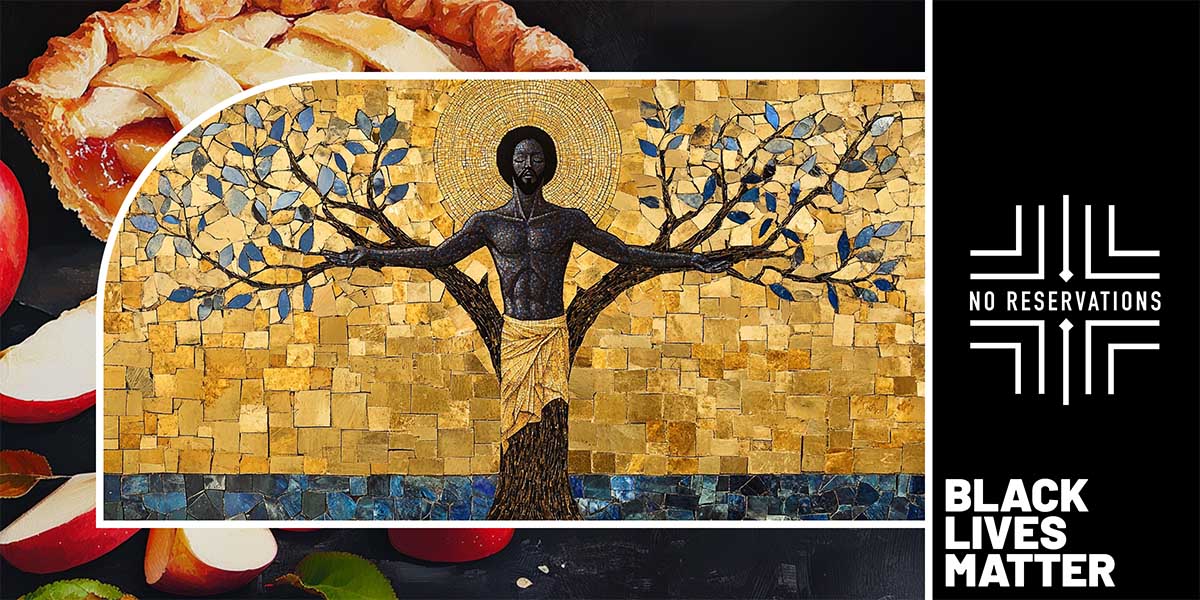“The church is the church only when it exists for others…not dominating, but helping and serving. It must tell men of every calling what it means to live for Christ, to exist for others.”
— *Dietrich Bonhoeffer, Letters and Papers from Prison
1. The Call to Radical Inclusivity
- Galatians 3:28 (NIV)
“There is neither Jew nor Gentile, neither slave nor free, nor is there male and female, for you are all one in Christ Jesus.”
This verse underscores the idea that all distinctions and divisions are erased in the eyes of God, calling for unity and belonging. - Romans 15:7 (NIV)
“Accept one another, then, just as Christ accepted you, in order to bring praise to God.”
A reminder that inclusivity begins with genuine acceptance and hospitality, mirroring the love of Christ. - Colossians 3:11 (NIV)
“Here there is no Gentile or Jew, circumcised or uncircumcised, barbarian, Scythian, slave or free, but Christ is all, and is in all.”
A call to recognize the Divine in every person, breaking down barriers of culture, class, or background.
2. Valuing and Amplifying Marginalized Voices
- Proverbs 31:8-9 (NIV)
“Speak up for those who cannot speak for themselves, for the rights of all who are destitute. Speak up and judge fairly; defend the rights of the poor and needy.”
Inclusivity includes actively advocating for marginalized voices and standing up for justice. - Luke 14:13-14 (NIV)
“But when you give a banquet, invite the poor, the crippled, the lame, the blind, and you will be blessed. Although they cannot repay you, you will be repaid at the resurrection of the righteous.”
Jesus challenges us to intentionally include those who are often overlooked, emphasizing compassion over reciprocity. - James 2:1-4 (NIV)
“My brothers and sisters, believers in our glorious Lord Jesus Christ must not show favoritism. Suppose a man comes into your meeting wearing a gold ring and fine clothes, and a poor man in filthy old clothes also comes in. If you show special attention to the man wearing fine clothes and say, ‘Here’s a good seat for you,’ but say to the poor man, ‘You stand there’ or ‘Sit on the floor by my feet,’ have you not discriminated among yourselves and become judges with evil thoughts?”
This verse challenges unconscious bias and favoritism, calling for equitable treatment of all.
3. Cultivating Empathy and Vulnerability
- Philippians 2:3-4 (NIV)
“Do nothing out of selfish ambition or vain conceit. Rather, in humility value others above yourselves, not looking to your own interests but each of you to the interests of the others.”
Inclusivity requires humility, empathy, and a commitment to truly seeing others’ needs. - Romans 12:15-16 (NIV)
“Rejoice with those who rejoice; mourn with those who mourn. Live in harmony with one another. Do not be proud, but be willing to associate with people of low position. Do not be conceited.”
Empathy is a key building block of authentic connection, as it creates shared experiences of joy and sorrow. - Ephesians 4:2-3 (NIV)
“Be completely humble and gentle; be patient, bearing with one another in love. Make every effort to keep the unity of the Spirit through the bond of peace.”
This verse speaks to the importance of patience, gentleness, and love in building strong and inclusive communities.
4. Breaking Down Barriers
- Matthew 25:35-36 (NIV)
“For I was hungry and you gave me something to eat, I was thirsty and you gave me something to drink, I was a stranger and you invited me in, I needed clothes and you clothed me, I was sick and you looked after me, I was in prison and you came to visit me.”
Jesus emphasizes the importance of welcoming and caring for the most vulnerable as an expression of true faith. - Acts 10:34-35 (NIV)
“Then Peter began to speak: ‘I now realize how true it is that God does not show favoritism but accepts from every nation the one who fears him and does what is right.'”
Peter’s realization highlights God’s universal love and inclusivity, challenging us to reflect the same in our communities.
5. The Power of Authentic Community
- 1 Corinthians 12:25-26 (NIV)
“So that there should be no division in the body, but that its parts should have equal concern for each other. If one part suffers, every part suffers with it; if one part is honored, every part rejoices with it.”
True belonging comes from shared concern and collective well-being, where every person matters equally. - Hebrews 13:1-2 (NIV)
“Keep on loving one another as brothers and sisters. Do not forget to show hospitality to strangers, for by so doing some people have shown hospitality to angels without knowing it.”
A reminder to remain openhearted, welcoming all with love and kindness.
Deep Questions for Authentic Reflection
1. How do you balance personal transformation with ethical responsibility to others?
- Micah 6:8 and Romans 12:2 challenge us to live justly, love mercy, and renew our minds. In a world that often prioritizes personal success over communal well-being, how do you ensure that your transformation also benefits those around you?
2. In what ways has gratitude shaped your ability to serve and uplift others?
- Philippians 2:3-4 and 1 Thessalonians 5:18 emphasize humility and thankfulness. Have you ever experienced a time when gratitude shifted your focus from personal ambition to a greater purpose? How did that impact your actions?
3. How do you see your personal dreams aligning with a greater purpose?
-
- Jeremiah 29:11 and Ephesians 2:10 suggest that our lives are part of a larger divine design. Have you ever had a moment when your dreams or ambitions felt like they were serving something bigger than yourself? How did that realization affect your choices?





